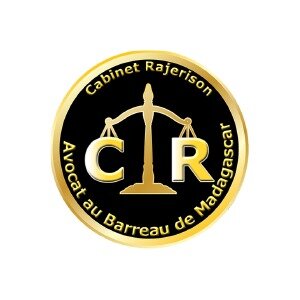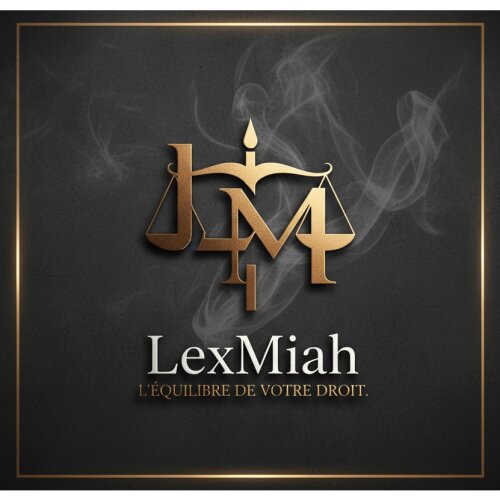Best Corporate Governance Lawyers in Madagascar
Share your needs with us, get contacted by law firms.
Free. Takes 2 min.
Or refine your search by selecting a city:
List of the best lawyers in Madagascar
About Corporate Governance Law in Madagascar
Corporate governance in Madagascar refers to the systems, rules, and practices that dictate how companies are directed and controlled. It covers the responsibilities of a company's board of directors, the rights of shareholders, and the accountability of management. Madagascar's corporate governance laws are shaped by both local legal frameworks and by international standards, aiming to promote transparency, protect stakeholders, and encourage business growth. Companies are required to comply with various statutes and regulations that address issues such as the structure of company boards, disclosure of financial information, and ethical business conduct.
Why You May Need a Lawyer
Several situations may arise where expert legal guidance on corporate governance is crucial in Madagascar. Entrepreneurs planning to launch or expand a business can benefit from legal advice on selecting appropriate governance structures. Company directors and officers may require guidance to fulfill their duties and avoid liability. Shareholders seeking to assert their rights, or parties involved in mergers and acquisitions, often require legal representation to ensure regulatory compliance. Furthermore, businesses facing audits or investigations, or seeking to resolve internal disputes, commonly require specialized legal support. Legal advice is essential for businesses aiming to stay compliant, avoid penalties, and maintain good reputations in Madagascar's evolving business landscape.
Local Laws Overview
Madagascar’s legal landscape for corporate governance is influenced by its Commercial Code (Code de Commerce) and various laws that stipulate company structures and responsibilities. The most common company forms are the Société Anonyme (SA) and Société à Responsabilité Limitée (SARL). Laws regulate board composition, including requirements for director independence and the establishment of internal control mechanisms. There are requirements for regular shareholder meetings, accurate record keeping, and reporting. The Financial Markets Authority (Autorité de Supervision des Marchés Financiers et des Assurances - ASMFA) also plays a supervisory role for listed entities. Anti-corruption laws and rules mandating the transparency of business dealings are increasingly enforced to align with international governance standards.
Frequently Asked Questions
What is the main law governing corporate governance in Madagascar?
The Commercial Code of Madagascar provides the primary legal framework for corporate governance, supported by sector-specific regulations and anti-corruption laws.
What types of companies exist in Madagascar?
The most common company types are Société Anonyme (SA) - similar to a public limited company, and Société à Responsabilité Limitée (SARL) - similar to a limited liability company.
What are the basic responsibilities of directors in Madagascar?
Directors are responsible for the overall management of the company, ensuring compliance with laws, acting in good faith, overseeing financial reporting, and protecting the interests of shareholders.
Are there minimum requirements for board composition?
Yes, laws specify minimum numbers of directors and often encourage or require the inclusion of independent members, particularly for larger or publicly listed entities.
How are shareholders’ rights protected?
Shareholders have the right to attend and vote at general meetings, receive information about the company, and participate in key decisions such as approving financial statements and appointing directors.
What regulations exist regarding transparency?
Companies must maintain accurate accounting records, make regular financial disclosures, and comply with anti-money laundering and anti-corruption obligations.
How often must companies hold general meetings?
Annual general meetings are mandatory for most types of companies, during which shareholders review accounts and make major decisions.
Can foreign nationals serve as directors?
Yes, there is no general prohibition against appointing foreign nationals as directors, though certain regulated sectors may have additional restrictions.
What penalties exist for governance failures?
Penalties can include fines, disqualification from serving as a director, company dissolution, or even criminal liability for serious offenses like fraud or corruption.
Is it mandatory to have company bylaws in Madagascar?
Yes, all companies must draft and adhere to bylaws (statuts) outlining internal management, board procedures, and governance policies.
Additional Resources
For more information and support regarding corporate governance in Madagascar, consider consulting the following:
- The Commercial Court (Tribunal de Commerce) for matters of company law and disputes
- Financial Markets Authority (ASMFA) for guidance on public company standards
- Chamber of Commerce and Industry for business registration and good governance practices
- Ministry of Justice for updates on laws and regulations
- Professional associations of legal advisors and auditors for specialized governance advice
Next Steps
If you need legal assistance in corporate governance in Madagascar, start by gathering relevant company documentation, including your bylaws and recent financial statements. Consider consulting with a local lawyer who has experience in corporate and commercial law. Schedule an initial meeting to explain your situation and receive tailored advice. If you are facing a specific issue such as a shareholder dispute or regulatory investigation, provide detailed information about the problem. Always ensure that your legal advisor is registered and has a solid reputation in the field. Taking early action and seeking professional guidance can help safeguard your company’s operations and reputation.
Lawzana helps you find the best lawyers and law firms in Madagascar through a curated and pre-screened list of qualified legal professionals. Our platform offers rankings and detailed profiles of attorneys and law firms, allowing you to compare based on practice areas, including Corporate Governance, experience, and client feedback.
Each profile includes a description of the firm's areas of practice, client reviews, team members and partners, year of establishment, spoken languages, office locations, contact information, social media presence, and any published articles or resources. Most firms on our platform speak English and are experienced in both local and international legal matters.
Get a quote from top-rated law firms in Madagascar — quickly, securely, and without unnecessary hassle.
Disclaimer:
The information provided on this page is for general informational purposes only and does not constitute legal advice. While we strive to ensure the accuracy and relevance of the content, legal information may change over time, and interpretations of the law can vary. You should always consult with a qualified legal professional for advice specific to your situation.
We disclaim all liability for actions taken or not taken based on the content of this page. If you believe any information is incorrect or outdated, please contact us, and we will review and update it where appropriate.
Browse corporate governance law firms by city in Madagascar
Refine your search by selecting a city.















